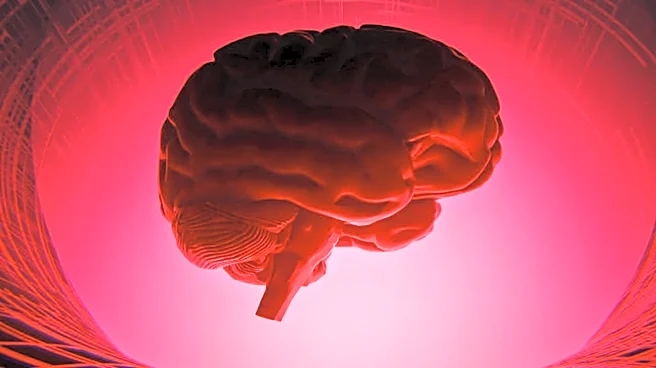What's Happening?
A recent case study led by Valentina La Corte at Paris Cité University and the Paris Brain Institute explores a teenager with hyperthymesia, a rare condition characterized by the ability to recall personal memories with exceptional detail and control. The study focuses on a 17-year-old, referred to as TL, who not only remembers past events vividly but can also imagine future scenarios with similar richness. TL organizes her memories in a unique mental framework, distinguishing between factual memories and those significant to her identity. This organization includes thematic binders and emotional containers, allowing her to manage the impact of difficult experiences. The study utilized tools like TEMPau and TEEAM to assess TL's memory capabilities, revealing her ability to shift perspectives and maintain detailed recall.
Why It's Important?
The study of hyperthymesia offers insights into the cognitive and neural systems involved in memory and imagination. Understanding how individuals like TL manage their memories can inform therapeutic approaches, potentially helping others structure their memories to reduce distress. The ability to recall and imagine with such detail is linked to improved goal setting and identity formation, highlighting the importance of memory in everyday life. However, the emotional burden of vivid memories poses challenges, raising ethical considerations about the impact on decision-making and mood. The research underscores the need for better tools to verify memory accuracy and longitudinal studies to track changes over time.
What's Next?
Future research on hyperthymesia will require larger sample sizes and standardized methods to validate findings across different cases. The study suggests exploring the potential for teaching memory organization techniques to enhance clarity and reduce emotional distress. Additionally, understanding the overlap between memory and imagination processes could lead to advancements in clinical practices, particularly in addressing conditions that affect memory recall and future planning. The field aims to develop more precise tools for assessing memory accuracy and to investigate the long-term effects of hyperthymesia on individuals as they age.
Beyond the Headlines
Hyperthymesia raises ethical questions about the intensity of memory retrieval and its impact on individuals' mental health. The ability to recall painful memories vividly can complicate emotional regulation and decision-making, suggesting a need for careful consideration in therapeutic settings. The study also highlights the potential for memory organization techniques to be applied in educational contexts, offering a way to enhance learning and personal development. As research progresses, it may reveal broader implications for understanding human cognition and the balance between memory retention and emotional well-being.








